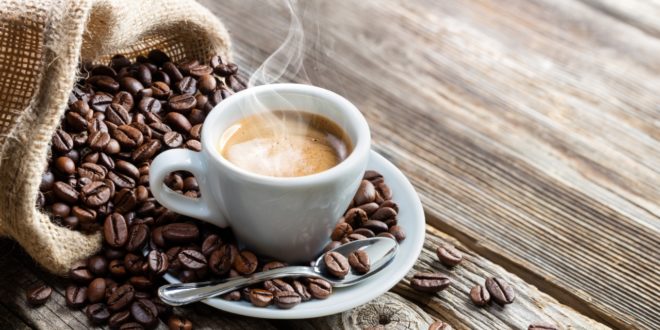We’ve also upped our caffeine intake in soft drinks and in chocolate to give us that boost. It used to be just cola drinks that contained caffeine. We find it in particular orange, root beer, and lemon-lime brands. Then there are painkillers, cold medicines, and other medications that give us that extra boost when we have a headache or a cold.
Energy Drinks
To top it off, around 1997 energy drinks were introduced. These carbonated drinks contained even higher levels of caffeine. Today the top-selling brand Red Bull sold more than two billion cans in a year. Its marketing campaign targets young people. Although the label warns not to mix energy drinks with alcohol, the latest trend is to combine them with alcohol.1
And this year, a new energy drink hit the market, “Cocaine” (called Speed in a can). This new drink has 351 percent more caffeine than Red Bull but has no Cocaine. According to the manufacturer, the goal is to provide youth with an alternative to Cocaine and still get that “buzz.”
What Is Caffeine?
Precisely what is caffeine? It is a mild central nervous system stimulant and a diuretic. It is naturally found in the leaves, seeds, and fruit of more than 63 plants, including tea, coffee, cacao, kola, and guarana.
In 1820, the stimulant was isolated in coffee by a German chemist named Friedlieb Ferdinand Runge. The term caffeine was given the meaning “something found in coffee.” Caffeine was also identified in tea in 1832. 2
Controversial Issues
Researchers have studied caffeine, and much of the results are often controversial. Here are a few of the controversial issues:
Heart Health—studies have reported that caffeine can temporarily raise blood pressure and homocysteine levels. “This substance is associated with increased risk of heart disease.”3 Some brands of coffee have been reported to raise cholesterol, but this may be due to cafestol and kahweol, two substances found in coffee.4 Recently, researchers have reported that caffeine does not increase the risk for heart disease.5
Diabetes—caffeine has been thought to increase the risk of diabetes because glucose tolerance is reduced shortly after ingesting caffeinated drinks. However, recent results of studies state that caffeinated coffee may help lower the risk of diabetes.6
Cancer—there is little evidence that caffeine increases the risk of cancer.7
Pregnancy—300 mg or more of caffeine can negatively affect pregnancy outcome.8
Seven Reasons to Avoid Caffeine
Even though the results of these studies are still being debated, here are seven reasons to avoid the stimulant:
1. Studies have not evaluated the long-term effects of high levels of caffeine that are being consumed today.
2. We do not know caffeine’s impact on the body when taken with alcohol or other drugs.
3. Those with high blood pressure, pregnant women, children, teenagers, and the elderly may be more vulnerable to the side effects of caffeine.
4. There have been isolated deaths associated with high levels of caffeinated drinks. These deaths are usually related to other conditions that make these individuals vulnerable.9
5. High caffeine intake before pregnancy may be associated with spontaneous abortion.
6. Caffeinated beverages are often used to help sustain us through moments of trying to stay awake. By consuming caffeine, we override our bodies telling us to sleep, becoming even more active. This further deprives the body of the rest it needs to maintain good health.
7. Colas with caffeine may lower calcium levels in women’s bones.10
Caffeine is a mainstream fixture in our food supply, but it doesn’t have to be part of our diet. Choose wisely.
If you liked this, you might also like Coffee and Caffeine
Pamela Williams, MPH, writes from Southern California.
Sources of Caffeine Level (mg):
Caffeinated Sodas (12 oz.) - 23-55 mg
Coffee (5 oz.) - 60-150 mg.
Decaffeinated coffee (5 oz.) - 2-5 mg.
Hot Cocoa (5 oz.) - 5-8 mg.
Tea (5 oz.) - 40-180 mg.
Coffee Ice Cream/Yogurt (1 cup) - 40-85 mg.
Bitter Chocolate (1 oz.) - 5-35 mg.
Non perscription drugs - 16-200 mg.
Energy drinks (8 oz.) - 100-280 mg.
Sources for above calculations:
www.webmd.com/content/article/46/1826_50681.htm
http://www.cspinet.org/reports/caffeine.pdf
http://faculty.washington.edu/chudler/caff.html
1 "Caffeine in the Diet," Medline Plus. http://www.nlm.nih.gov/medlineplus/ency/article/002445.htm Accessed 10/11-2006.
2 T. R. Reid, "Caffeine," National Geographic, January 2005, pp. 3-32.
3 V. J. Higdon and B. Frei, "Coffee and Health: A Review of Recent Human Research," Critical Reviews in Food Science and Nutrition 46, no. 2 (2006): 101-123.
4 Ibid.
5 E. Lopez-Garcia, R. M. van Dam, W. C. Willett, et al., "Coffee Consumption and Coronary Heart Disease in Men and Women: A Prospective Cohort Study," Circulation 113, no. 17 (2006): 2045-2053.
6 Higdon and Frei.
7 Ibid.
8 M. Giannelli, P. Doyle, E. Roman, M. Pelerin, C. Hermon, "The Effect of Caffeine Consumption and Nausea on the Risk of Miscarriage," Pediatric Perinatal Epidemiology 17, no. 4 (2003): 316-323.
9 M. E. Cannon, C. T. Cooke, and J. E. McCarthy, "Caffeine-induced Cardiac Arrhythmia: An Unrecognized Danger of Health Food Products," The Medical Journal of Australia 174:520-521.
10 "Cola Raises Women's Risk for Osteoporsis," October 6, 2006. http://www.everydayhealth.com/publicsite/ShowArticle.aspx?IsP=news/535/news535373.xml&cen=HC:520 Accessed 10/11/06.
 Answers for Me Support & encouragement for every-day life
Answers for Me Support & encouragement for every-day life



